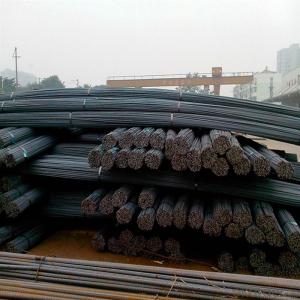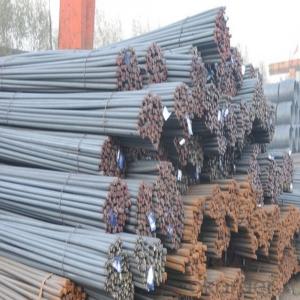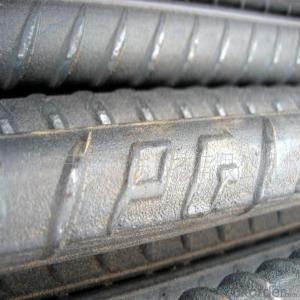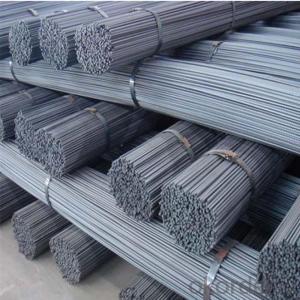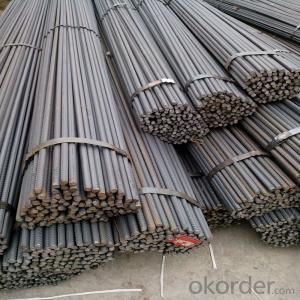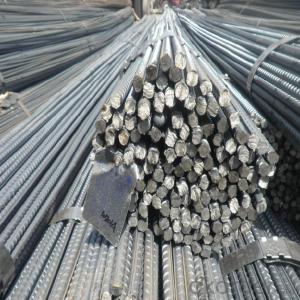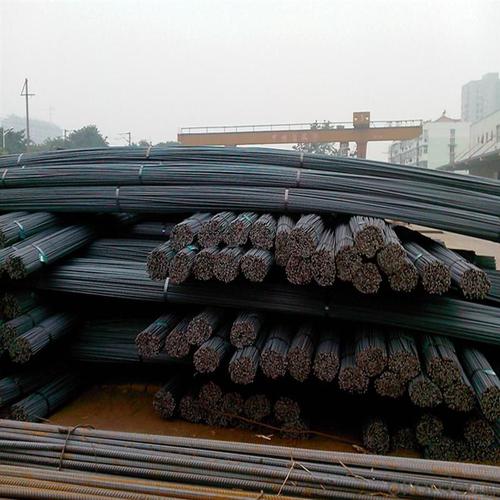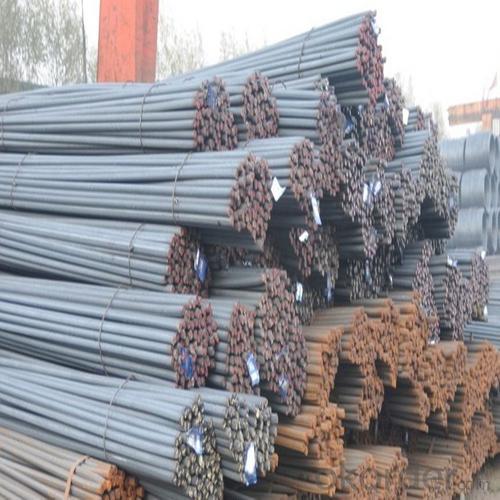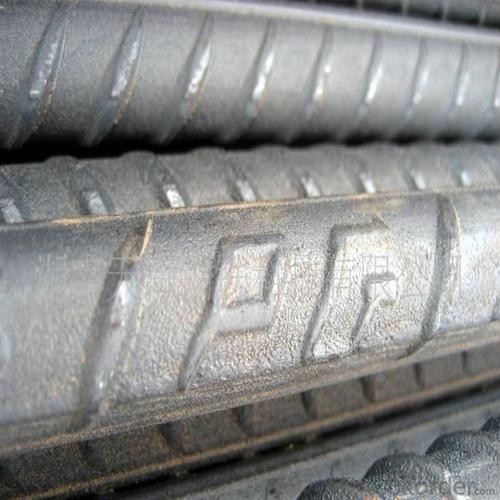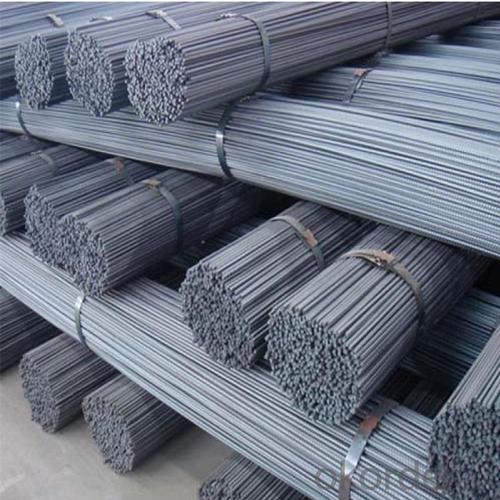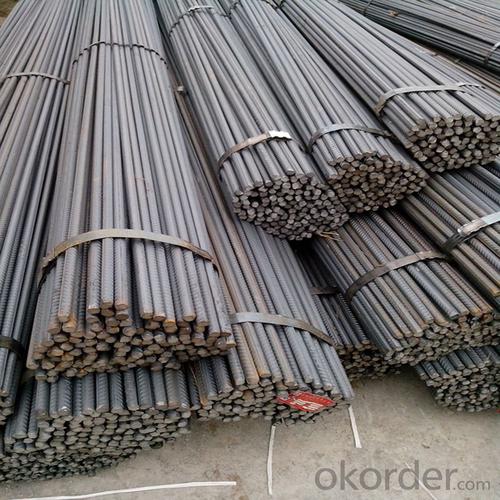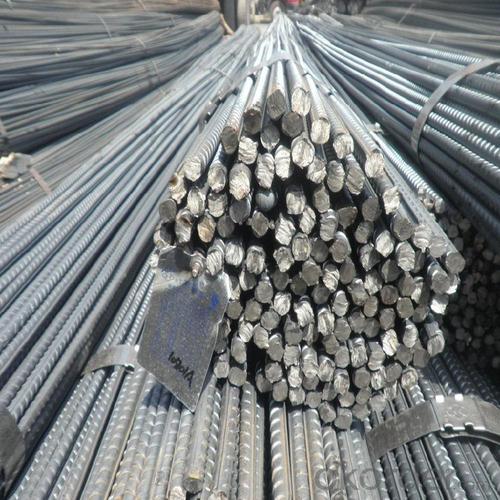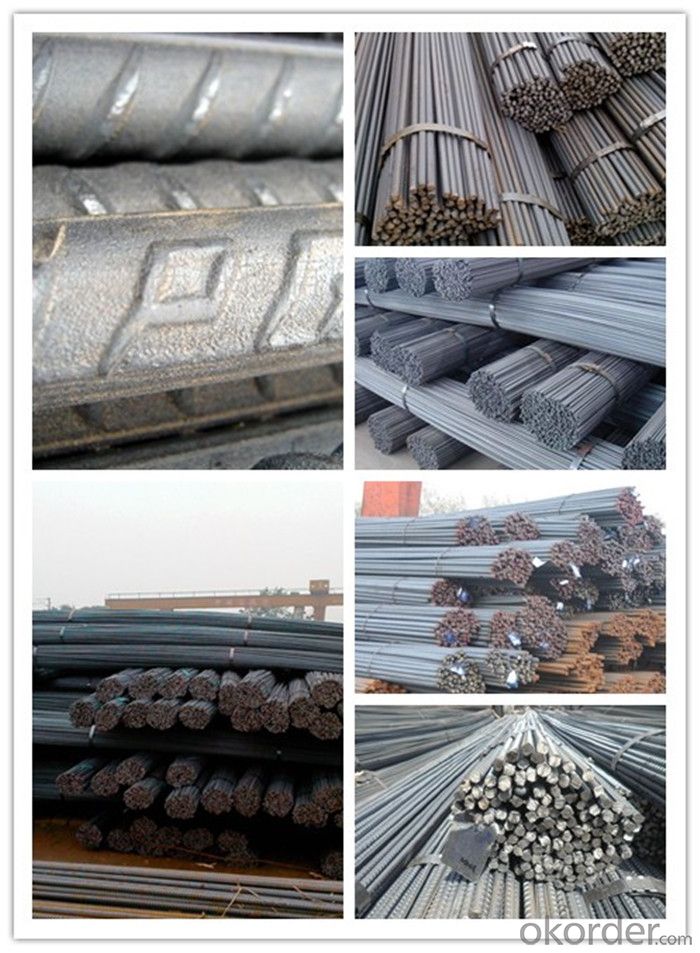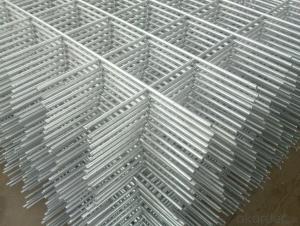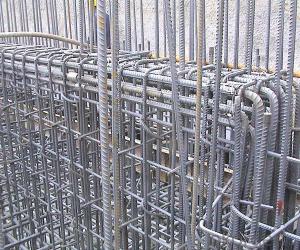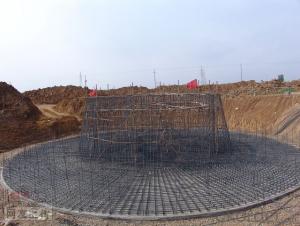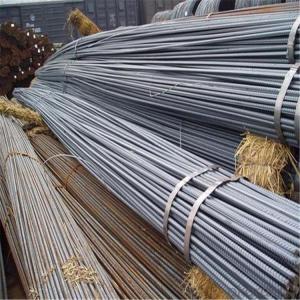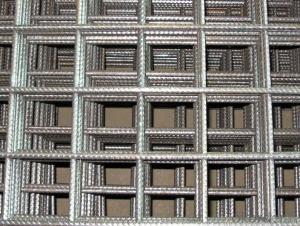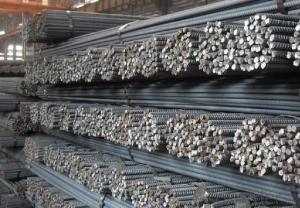HRB335 Deformed Steel Bar with Cheap Price
- Loading Port:
- Tianjin
- Payment Terms:
- TT OR LC
- Min Order Qty:
- 100 m.t.
- Supply Capability:
- 50000 m.t./month
OKorder Service Pledge
OKorder Financial Service
You Might Also Like
Specification
HRB335 Deformed Steel Bar with Cheap Price
Description of HRB335 Deformed Steel Bar:
1, Diameter: 5.5mm-10mm rounds reinforcing steel bar
10m- 40mm HRB335 Deformed Steel Bar
2, Length: 6m, 9m, 12m or customized
3, Standard: GB, ASTM, AISI, SAE, DIN, JIS, EN
OEM technology - send detailed technical parameters for accurate quotation.
2, Produce Process: smelt iron - EAF smelt billet - ESR smelt billet -
hot rolled or forged to get the steel round bar and plate
3, Heat Treatment: annealing, normalizing, tempering, quenching
4, Surface Treatment: Black
5, Quality Assurance: We accept third party inspection for all orders.
You can ask testing organizations such as SGS, BV, etc. to test our products before shipping.
Chemical Composition of HRB335 Deformed Steel Bar:
Grade | Technical data of the original chemical composition(%) | |||||
Reinforcing steel bar HRB335 | C | Mn | Si | S | P | B |
≤0.25 | ≤1.60 | ≤0.80 | ≤0.045 | ≤0.045 | >0.0008 | |
Physics Capability | ||||||
Yield Strength(N/cm2) | Tensile Strength(N/cm2) | Elongation(%) | ||||
≥ 335 | ≥490 | ≥16 | ||||
Reinforcing steel bar HRB400 | C | Mn | Si | S | P | B |
≤0.25 | ≤0.16 | ≤0.80 | ≤0.045 | ≤0.045 | 0.04-0.12 | |
Physics Capability | ||||||
Yield Strength(N/cm2) | Tensile Strength(N/cm2) | Elongation(%) | ||||
≥ 400 | ≥ 570 | ≥ 14 | ||||
Product Show of HRB335 Deformed Steel Bar:
Workshop
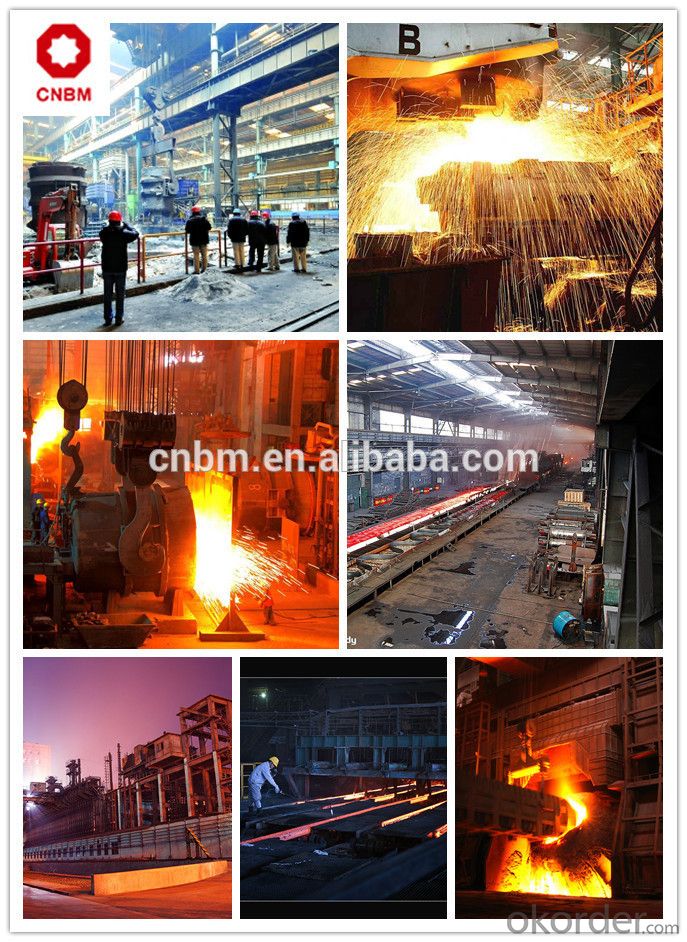
Company Information:
CNBM International Corporation is the most important trading platform of CNBM group.
Whith its advantages, CNBM International are mainly concentrate on Cement, Glass, Iron and Steel, Ceramics industries and devotes herself for supplying high qulity series of refractories as well as technical consultancies and logistics solutions.


FAQ:
1, Your advantages?
professional products inquiry, products knowledge train (for agents), smooth goods delivery, excellent customer solution proposale
2, Test & Certificate?
SGS test is available, customer inspection before shipping is welcome, third party inspection is no problem
3, Factory or Trading Company?
CNBM is a trading company but we have so many protocol factories and CNBM works as a trading department of these factories. Also CNBM is the holding company of many factories.
4, Payment Terms?
30% TT as deposit and 70% before delivery.
Irrevocable L/C at sight.
5, Trading Terms?
EXW, FOB, CIF, FFR, CNF
6, After-sale Service?
CNBM provides the services and support you need for every step of our cooperation. We're the business partner you can trust.
For any problem, please kindly contact us at any your convenient time.
We'll reply you in our first priority within 24 hours.
Contact Us:

- Q: What is the role of special steel in the oil and gas industry?
- Special steel plays a crucial role in the oil and gas industry as it is used for various applications where high strength, corrosion resistance, and temperature resistance are required. It is commonly used to manufacture pipes, valves, and fittings for oil and gas extraction, transportation, and processing. Special steel's properties enable it to withstand harsh environments, such as high pressure, extreme temperatures, and corrosive fluids, ensuring the integrity and safety of equipment and infrastructure in the oil and gas industry.
- Q: How does special steel contribute to the manufacturing of oil and gas equipment?
- Special steel plays a crucial role in the manufacturing of oil and gas equipment due to its unique properties and characteristics that make it suitable for the demanding conditions of the industry. Firstly, special steel is known for its high strength and durability, which is essential in the production of oil and gas equipment. Equipment such as drilling rigs, pipelines, and storage tanks are subjected to extreme pressures, corrosive environments, and harsh weather conditions. Special steel, with its superior mechanical properties, can withstand these conditions and ensure the reliable and long-lasting performance of the equipment. Additionally, special steel offers excellent resistance to corrosion and oxidation, which are prevalent in the oil and gas industry. The presence of corrosive substances and the exposure to high temperatures can cause regular steel to deteriorate quickly. However, special steel is specifically designed to resist corrosion, ensuring that the equipment remains functional and safe for use over its lifetime. Furthermore, special steel can withstand high temperatures and pressure differentials, making it suitable for applications such as heat exchangers and pressure vessels. These components are vital in various oil and gas processes, including refining and transportation. The ability of special steel to handle extreme temperatures and pressures ensures the efficiency and safety of these operations. Special steel also contributes to the manufacturing of oil and gas equipment by providing excellent weldability and machinability. This allows for ease of fabrication and assembly, reducing production time and costs. The versatility of special steel enables manufacturers to design and create complex equipment that meets the specific requirements of the oil and gas industry. In conclusion, special steel plays a crucial role in the manufacturing of oil and gas equipment by providing high strength, durability, corrosion resistance, and the ability to withstand extreme temperatures and pressures. Its unique properties ensure the reliability, safety, and longevity of the equipment, making it an indispensable material in the oil and gas industry.
- Q: How does special steel contribute to the overall economy?
- Special steel contributes to the overall economy in several ways. Firstly, it plays a crucial role in various industries such as automotive, construction, and manufacturing, where it is used for producing high-performance components and structures. This fosters innovation, enhances productivity, and drives economic growth. Additionally, the production and processing of special steel create employment opportunities, both directly and indirectly, stimulating job growth and income generation. Moreover, special steel exports contribute to trade balance and foreign exchange earnings, further bolstering the economy. Overall, the utilization of special steel in diverse sectors strengthens industrial competitiveness, supports economic development, and fuels economic prosperity.
- Q: Can special steel be used for making power generation equipment?
- Indeed, power generation equipment can be constructed using special steel. Specifically engineered to possess enhanced characteristics like high strength, resistance to corrosion, heat, and wear, special steels are well-suited for use in arduous situations such as power generation equipment that often operates under conditions of elevated temperatures and pressures. Power generation equipment, including turbines, boilers, and generators, necessitates materials capable of enduring harsh operational circumstances and delivering dependable performance over an extended duration. Special steel grades, such as stainless steels, nickel-based alloys, and heat-resistant steels, are commonly employed in the construction of power plants and power generation equipment. Stainless steels are frequently utilized in power generation due to their exceptional resistance to corrosion, which is vital for equipment exposed to significant moisture or hostile environments. Nickel-based alloys are renowned for their outstanding strength at high temperatures, making them well-suited for components subjected to extreme heat, such as turbine blades or exhaust systems. On the contrary, heat-resistant steels are specifically designed to retain their mechanical properties at elevated temperatures, rendering them suitable for applications like boilers and heat exchangers. In conclusion, special steel possesses a variety of desirable properties that render it highly suitable for the production of power generation equipment. Its strength, corrosion resistance, heat resistance, and wear resistance make it an excellent choice for enduring the challenging conditions encountered in power plants, ensuring the efficient and reliable generation of electricity.
- Q: How is nitriding steel used in the production of tools and dies?
- Nitriding steel is used in the production of tools and dies to enhance their hardness, wear resistance, and overall performance. The process of nitriding involves introducing nitrogen to the surface of the steel, forming a hard nitride layer that significantly improves the tool's durability and lifespan. This treatment allows the tools and dies to withstand high temperatures, resist corrosion, and maintain their sharpness, making them more efficient and cost-effective in various industrial applications.
- Q: How does special steel contribute to the aerospace safety?
- Special steel contributes to aerospace safety in several ways. Firstly, special steel alloys are used in the construction of various critical components in aircraft, such as engine parts, landing gears, and structural elements. These alloys are specially designed to have high strength, durability, and resistance to fatigue and corrosion, ensuring the structural integrity and longevity of these components, ultimately enhancing the overall safety of the aircraft. Additionally, special steel is often employed in the production of cutting-edge aerospace technologies, including advanced sensors, control systems, and avionics. These technologies play a crucial role in enhancing the safety and performance of aircraft, enabling precise monitoring, efficient communication, and accurate navigation, thus minimizing the risk of accidents. Moreover, the use of special steel in aerospace manufacturing helps to reduce the weight of aircraft, leading to improved fuel efficiency. By utilizing lightweight steel alloys, the overall weight of the aircraft is reduced, increasing its maneuverability and reducing fuel consumption. This, in turn, contributes to enhanced safety by allowing for longer flight durations, increased payload capacity, and improved emergency response capabilities. Overall, special steel's unique properties and applications in aerospace contribute significantly to the safety of aircraft, ensuring their structural integrity, enhancing technological advancements, and improving fuel efficiency, all of which are vital for a safe and reliable aerospace industry.
- Q: How does special steel perform in terms of electrical conductivity?
- Special steel does not have high electrical conductivity compared to other materials such as copper or aluminum.
- Q: What are the common alloying elements in special steel?
- Some common alloying elements in special steel include chromium, nickel, molybdenum, and vanadium. Chromium is often added to improve the steel's corrosion resistance and enhance its hardness. Nickel is used to increase the steel's toughness and resistance to extreme temperatures. Molybdenum is another element that is frequently added to enhance the steel's strength and improve its resistance to wear and corrosion. Vanadium is known for its ability to increase the steel's hardness and strength, making it suitable for applications that require high durability. These alloying elements are carefully selected and added to special steel to achieve specific properties and meet the unique requirements of various industries such as automotive, aerospace, and construction.
- Q: What are the mechanical properties of special steel?
- Enhanced mechanical properties are possessed by special steels, also known as alloy steels, in comparison to regular carbon steels. These properties differ based on the concentration and specific alloying elements. Some common mechanical properties of special steel are as follows: 1. High tensile strength: Special steels are recognized for their exceptional strength, making them suitable for applications requiring high load-bearing capacity. The tensile strength of these steels can vary from 500 MPa to over 2,000 MPa, depending on the composition. 2. Improved hardness: The inclusion of alloying elements in special steels can significantly increase their hardness. This property is desirable for applications that demand resistance to wear and abrasion. Special steels can achieve hardness levels ranging from 200-600 HB (Brinell hardness), depending on the specific alloy composition and heat treatment. 3. Good toughness: Special steels commonly exhibit good toughness, which refers to their ability to absorb energy before fracturing. This property is crucial for components subjected to impact or dynamic loading. The combination of high strength and toughness makes special steels suitable for demanding applications such as automotive parts or industrial machinery. 4. Excellent fatigue resistance: Special steels are engineered to withstand cyclic loading without failure. They display enhanced fatigue resistance, enabling them to endure repeated stress cycles without compromising their structural integrity. This property makes special steels ideal for critical components in the aerospace, automotive, and machinery industries. 5. Superior corrosion resistance: Depending on the alloy composition, special steels can offer improved corrosion resistance compared to regular carbon steels. The addition of elements like chromium, nickel, or molybdenum aids in the formation of protective oxide layers on the surface, preventing corrosion and increasing durability. 6. High temperature resistance: Certain special steels are specifically formulated to perform well at elevated temperatures. They possess excellent heat resistance and can retain their mechanical properties even under extreme temperatures. This property is crucial for applications such as turbine blades, exhaust systems, or high-temperature furnaces. It is important to note that the specific mechanical properties of special steel can vary significantly depending on the specific alloy composition, heat treatment, and processing techniques employed. Therefore, it is essential to consult the material specifications or seek expert advice to determine the exact mechanical properties of a particular special steel.
- Q: What is the role of research and development in advancing special steel technology?
- The role of research and development in advancing special steel technology is crucial. Through continuous research and development efforts, new and improved manufacturing processes, alloys, and applications for special steel can be discovered and developed. This leads to advancements in the properties and performance of special steel, making it more durable, resistant to wear and corrosion, and capable of meeting the evolving needs of industries such as automotive, aerospace, and energy. Additionally, research and development help in optimizing production techniques, reducing costs, and promoting sustainability in the special steel industry. Overall, research and development play a vital role in pushing the boundaries of special steel technology, enabling innovation and driving progress in various sectors.
Send your message to us
HRB335 Deformed Steel Bar with Cheap Price
- Loading Port:
- Tianjin
- Payment Terms:
- TT OR LC
- Min Order Qty:
- 100 m.t.
- Supply Capability:
- 50000 m.t./month
OKorder Service Pledge
OKorder Financial Service
Similar products
Hot products
Hot Searches
Related keywords
